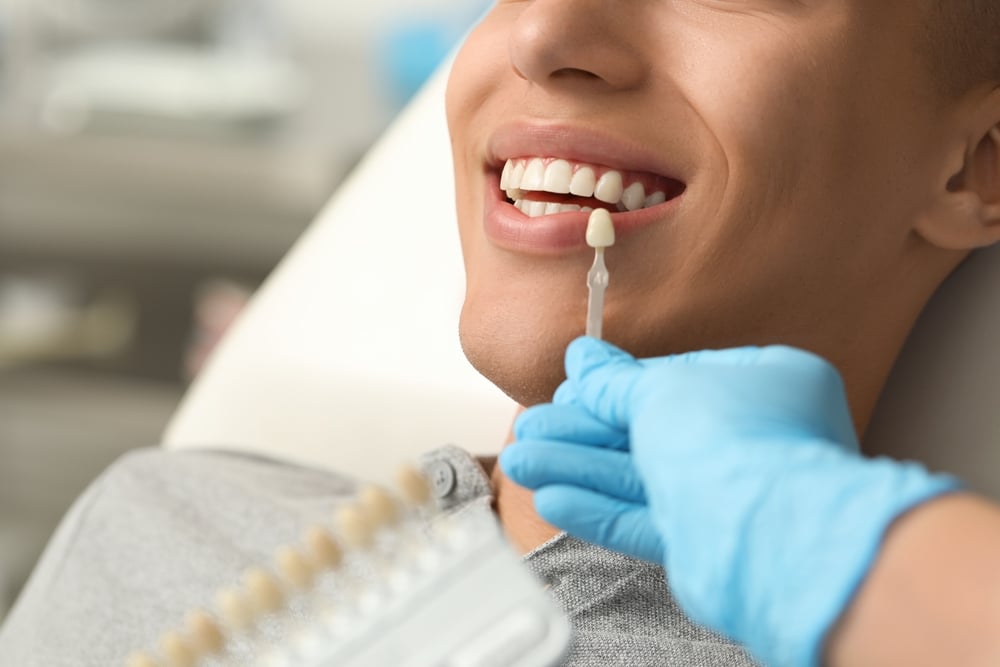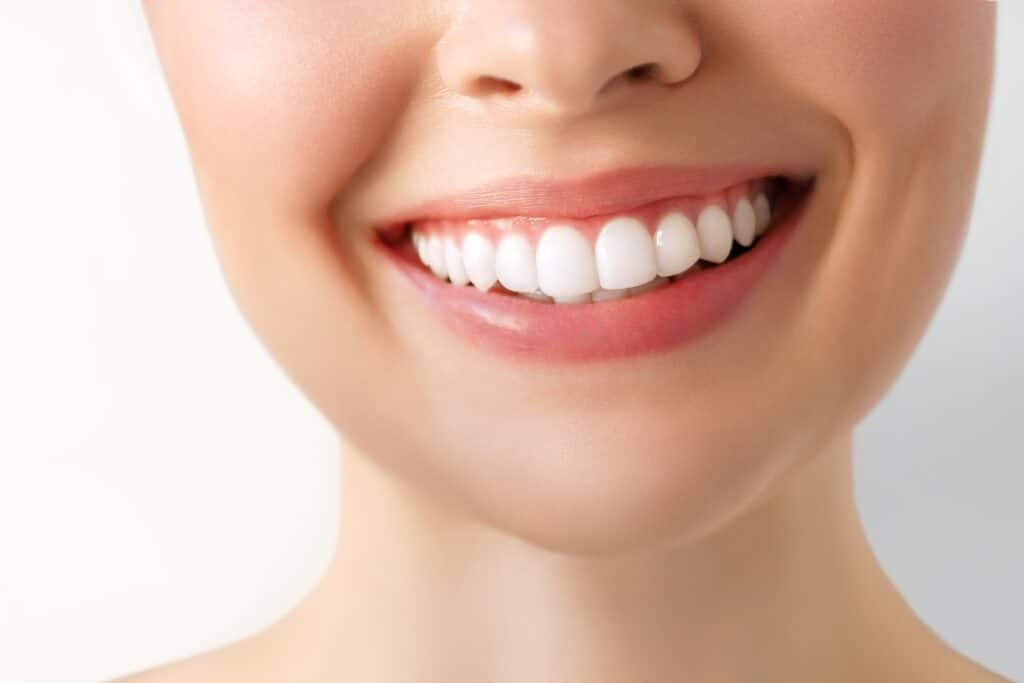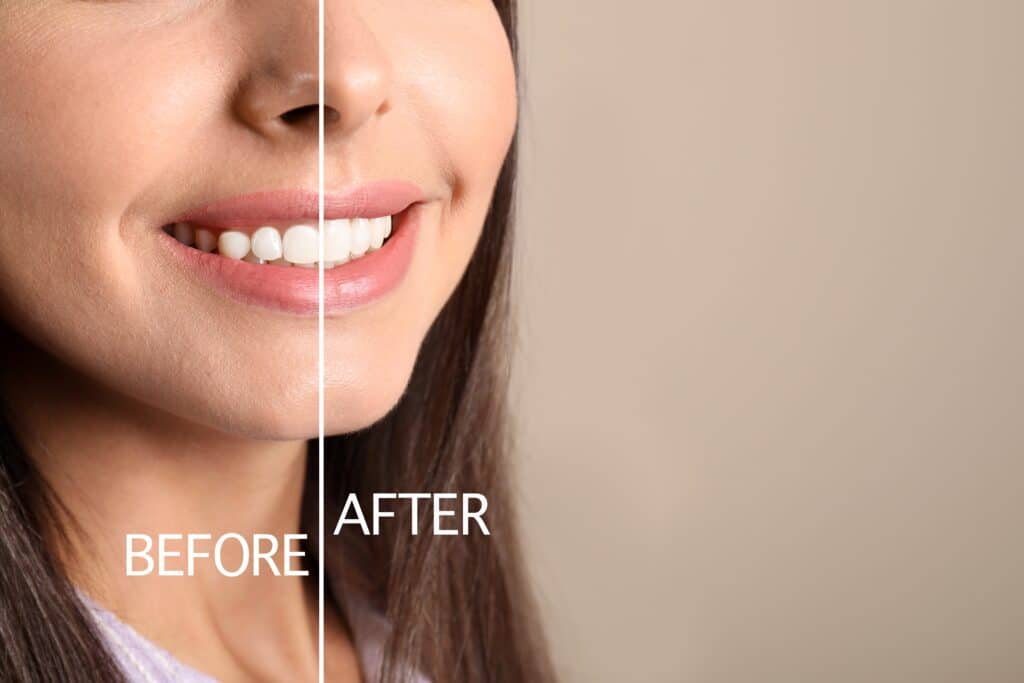Icy winds and cold air can be unpleasant even for those with perfect teeth and good oral health. However, the unpleasantness can turn into sensitivity and even hurt teeth and gums. Teeth and gums are subject to wear and tear and issues can arise over a period of time. Oftentimes, we only become aware of the issue when the pain starts in the cold. Sensitive teeth and gums can be vulnerable when breathing in the cold air through your mouth. There are numerous reasons why teeth can sensitive to cold weather. In this article, we will explore why your teeth hurt when it’s cold, as well as ways to relieve some of the pain.
Why Do My Teeth Hurt When It’s Cold Outside?
Expansion and Contraction
Our teeth have to cope with extremes, from piping hot food and drink to the cold, icy air. When subjected to these extremes, teeth contract and expand. Over time little cracks can start to occur. The cracks expose the microscopic tubes that are vulnerable underneath the tooth enamel. While having very little impact on the structure of our teeth, the cracks can cause tooth sensitivity and discomfort. This is even more so the case with amalgam fillings, as metal contracts and expands faster than natural teeth.
Exposed Dentine
A tooth is comprised of four major components, one being dentine or dentin. Dentine is the layer of material immediately beneath the tooth enamel. Dentine encases the dental pulp inside our teeth. The dentine becomes exposed once the enamel or outer layer of our teeth has started to erode. Consequently, the nerves inside our teeth are exposed to cold weather causing your teeth to hurt.
Compromised Teeth
Compromised teeth and gums can be sensitive and painful at the best of times. The cold weather exacerbates these problems. Compromised teeth can have cavities or contain old fillings. Just like water, cold air will take the path of least resistance and find is why into cracks and cavities, and settle on the nerves, if they are even remotely exposed.
Compromised gums are equally defenseless. The wear and tear on gums can lead to the onset of gum disease, which is only noticeable when they become sensitive. Teeth and gums may also become compromised by poor dental hygiene and neglect.
Periodontal Disease
Periodontal disease is another reason your teeth might hurt in the cold. An early stage of periodontal disease is gingivitis. Gum disease and cementum can also be a reason your teeth hurt. Another reason might be exposed alveolar bone, which can expose the dentin, and exposed periodontal ligaments.
Brushing Too hard
Brushing too vigorously can damage teeth as it erodes the enamel. The best way to remove stains is not scrubbing. Instead, opt for a trip to the dental hygienist for a teeth cleaning or teeth whitening treatment.
Grinding and Clenching
While sleeping, many of us grind and clench our teeth. These actions wear down and erode the enamel on our teeth which makes them sensitive. Although it can be hard to stop clenching your teeth, dentists recommend a nightguard to protect your teeth from constant grinding.
Tooth Decay
Cold weather sensitivity might be an early indication of undetected decay in one or more teeth. Chances are that the tooth will be painful rather than just sensitive in the cold. If so, visit your local family dentist.
Teeth Whitening Agents
The ingredients in tooth whitening agents can also erode the tooth enamel as it removes stains. If your teeth feel sensitive after using these products, stop using them and consult your dentist.
Acidic Drinks
Drinks likes sodas and juice contain high acid concentrations, as do some coffees and teas. Acid is corrosive and erodes our teeth, thereby exposing the dentine layer. Limit your daily intake of acidic drinks and see if the pain goes away.
Lifestyle Habits
Small, poor daily habits can have a major impact on our teeth. They can cause our gums to recede. When this happens, our teeth become sensitive to temperature as the dentin at the base of our teeth is exposed. Dental neglect such as insufficient brushing and flossing is one bad habit. Smoking is another harmful lifestyle habit that can have negative consequences on your oral health.
Stopping the Pain
Stopping the pain may be as simple as changing to sensitive toothpaste and devoting more time and effort to dental hygiene. For example, brushing and flossing more often. It is also a good idea to schedule an appointment with a dental hygienist for a full oral examination and possibly x-rays, to identify the problem. A dentist can also paint a layer of protective varnish over your teeth to help block out the cold.
Additional Reading: How to Deal With Tooth Sensitivity to Cold Food or Drinks
Regency Family Dentistry Omaha | Best Omaha Dentist near Westroads Mall in Regency
Whether your teeth needs are a:
- complete exam and cleaning,
- full-mouth restoration
- or anything in between
We promise to provide exceptional dental care as we enhance the natural beauty of your smile. Below are just some of the many procedures and dental services we regularly provide to our patients – with a gentle touch, and stunning results. Your smile is our first priority, and we’ll give you something to smile about.
Preventative Dentistry
- Dental Exams
- Dental Cleanings
- Oral Cancer Exam
- Fluoride Treatment
- Sealants
- Dental X-Rays
- Home Care
- Nightguards & Mouthguards
Cosmetic Dentistry
- Dental Implants
- Composite Fillings
- Porcelain Crowns
- FixedPorcelain Bridges
- Porcelain Veneers
- Tooth Whitening
Periodontal Disease
- What is Periodontal (Gum) Disease?
- Diagnosis
- Treatment
- Maintenance
Restorative Dentistry
- Dental Implants
- Inlay Restorations
- Onlay Restorations
- Composite Fillings
- Crowns
- Dentures & Partial Dentures
- Fixed Bridges
- Root Canal Therapy
Oral Surgery
- Wisdom Teeth Extractions




